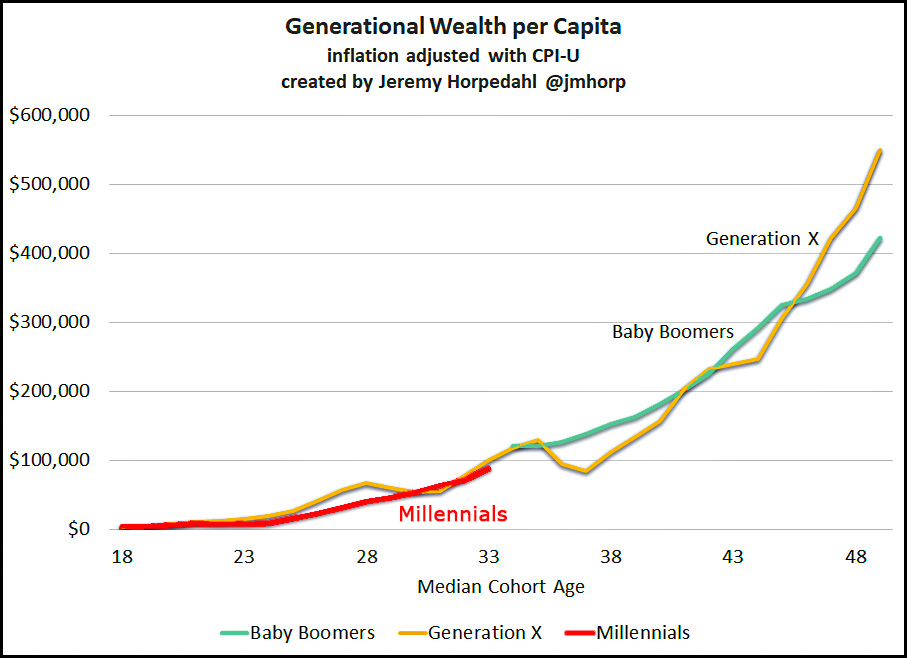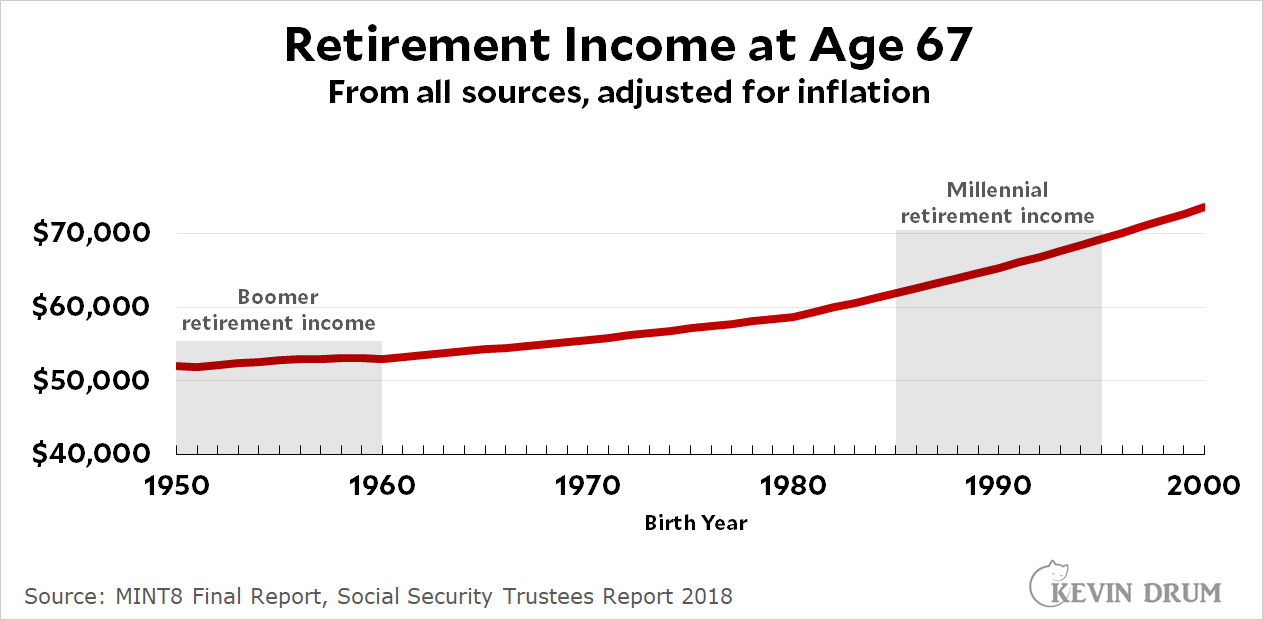I noticed yesterday that the Atlantic's Yoni Appelbaum has a new book coming out next year called Stuck. It asks, "How did America cease to be the land of opportunity?"
Obviously I haven't read it yet, but it got me curious. Has America ceased being the land of opportunity? My own suspicion is that America was never quite the land of opportunity that legend has it, but gained that reputation because for a lot of immigrants it was a helluva lot better than what they had before.
But who cares what my suspicion is? I was curious about whether things have fallen apart in the past few decades for young people. Here are several metrics that make up what people think of as the American Dream. First, homeownership:
 Are you surprised? Even with the growth of home prices, homeownership is the same among young people as it was in the '90s. Here is income:
Are you surprised? Even with the growth of home prices, homeownership is the same among young people as it was in the '90s. Here is income:
 There's a lot stagnation here thanks to the Great Recession, but that's in the past. Compared to 30 years ago, incomes of the youngest are up 30% and incomes of the next youngest are up 40%. That's not too bad. Here's a recent Fed report comparing income among generations:
There's a lot stagnation here thanks to the Great Recession, but that's in the past. Compared to 30 years ago, incomes of the youngest are up 30% and incomes of the next youngest are up 40%. That's not too bad. Here's a recent Fed report comparing income among generations:
 Every generation has done better than the previous one, including both Millennials and Gen Z. Here is wealth, which was a big concern at one time but now looks perfectly normal:
Every generation has done better than the previous one, including both Millennials and Gen Z. Here is wealth, which was a big concern at one time but now looks perfectly normal:
 Here is college:
Here is college:
 College completion is far higher among young people than it was 30 years ago. It's nearly doubled during that time. Here is retirement:
College completion is far higher among young people than it was 30 years ago. It's nearly doubled during that time. Here is retirement:

 Projections suggest that young people are likely to have a pretty prosperous retirement, although it may end up being a little less than Boomer retirement compared to average national income. Here is economic mobility:
Projections suggest that young people are likely to have a pretty prosperous retirement, although it may end up being a little less than Boomer retirement compared to average national income. Here is economic mobility:
 This is from a 2015 paper, so it's a little dated, but it shows little change between children born in 1971 and Millennials born in 1992. Mobility hasn't improved, but neither has it declined. Finally, here is new business formation:
This is from a 2015 paper, so it's a little dated, but it shows little change between children born in 1971 and Millennials born in 1992. Mobility hasn't improved, but neither has it declined. Finally, here is new business formation:
 This series goes back only to 2005, and there's evidence that starting up your own business has declined over the long term. But more recently, after falling during the Great Recession, it's now at a higher rate than it was at the beginning of the century. These figures are not specifically for young people, but it's a good bet that most small business formation is done by the relatively young.
This series goes back only to 2005, and there's evidence that starting up your own business has declined over the long term. But more recently, after falling during the Great Recession, it's now at a higher rate than it was at the beginning of the century. These figures are not specifically for young people, but it's a good bet that most small business formation is done by the relatively young.
So . . . it looks like young people aren't really stuck. They've got legit problems with college loans and high housing prices, but overall they're doing as well or better than any generation in recent memory.
UPDATE: I've corrected the homeownership chart. I originally miscalculated the combined rate of the 18-24 and 25-34 age cohorts.














